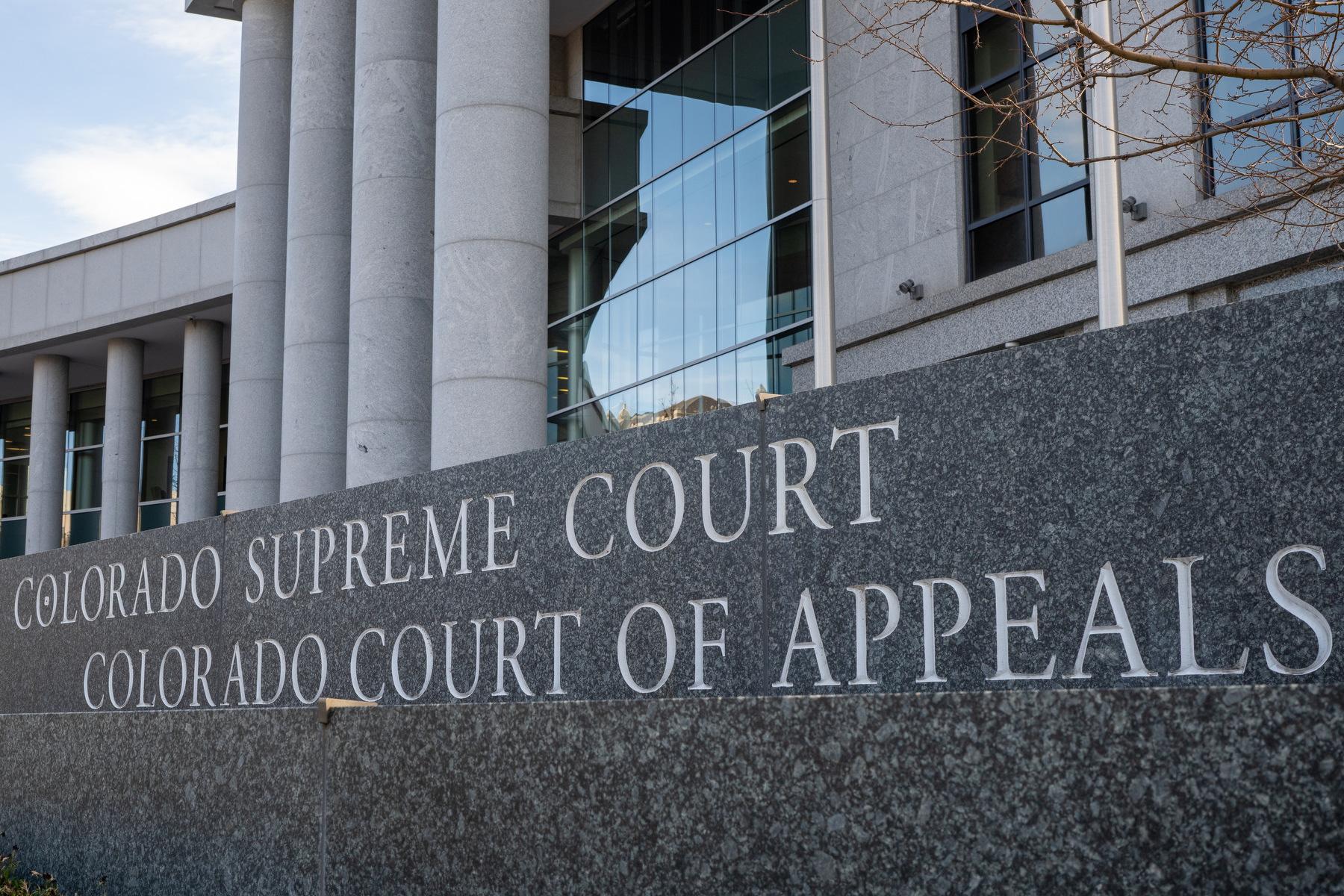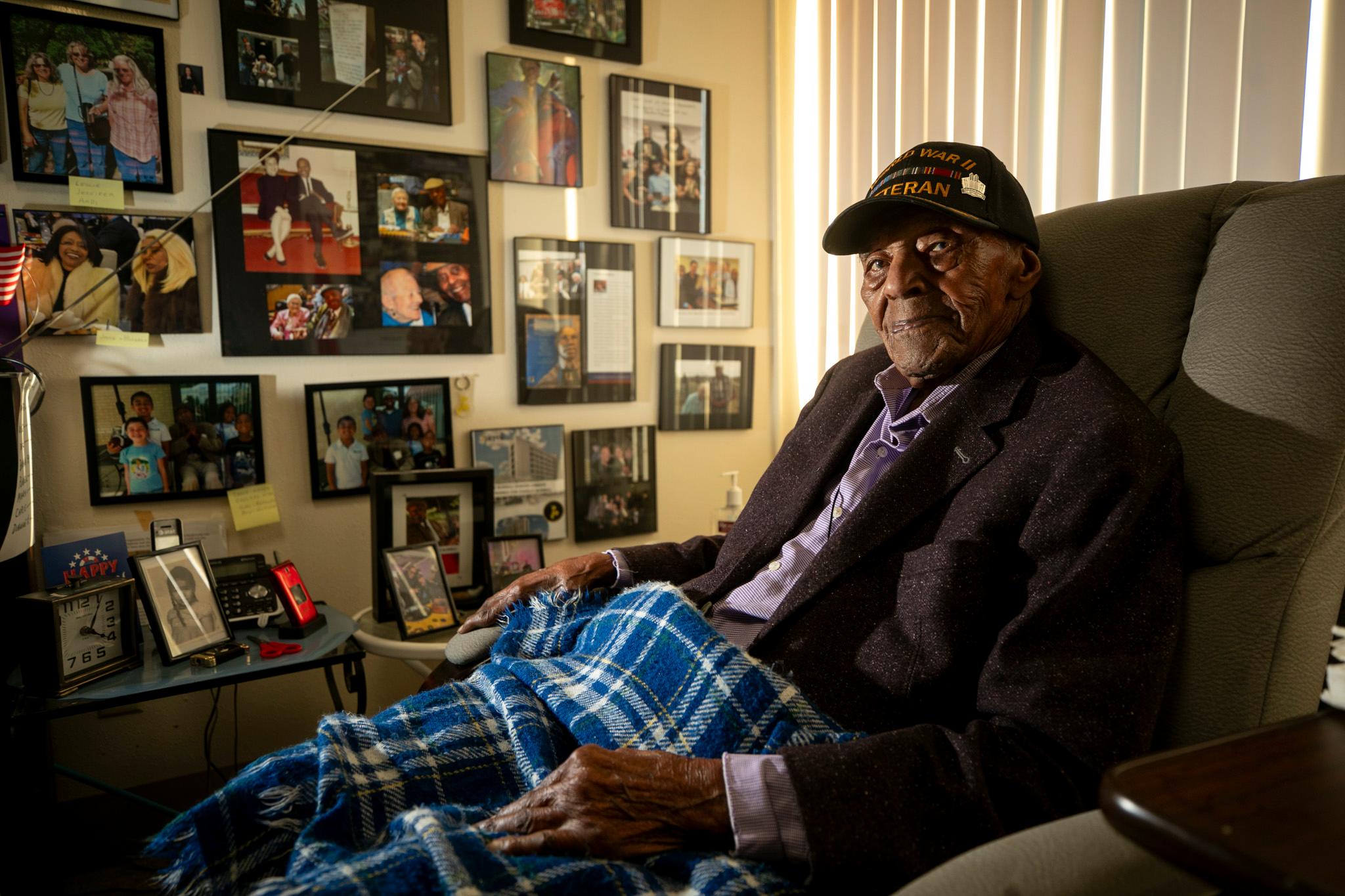
Updated at 12:40 p.m. on Friday, May 16, 2025.
A Grand Junction man who’s been in prison for more than two decades should be granted a new trial, the Colorado Court of Appeals affirmed in an opinion published today.
James Genrich was convicted in 1993 in relation to a string of pipe bomb explosions from 1989 to 1991 that killed two people in Mesa County, Maria Delores Gonzales and Henry Ruble.
Attorneys with the Innocence Project have been working on his case, arguing that he was convicted using discredited forensic analysis that concluded Genrich’s tools were the only ones that could have made markings found on the bombs. In the appeals court’s opinion, the tool-mark analysis evidence was crucial to the conviction, meaning Genrich should receive a new trial.
“Specifically, the expert’s conclusion that he matched tools found in the defendant’s boarding house room to toolmarks on the bombs ‘to the exclusion of any other tool’ and his remaining testimony was completely undermined by the new scientific evidence,” the opinion read.
Twenty-first Judicial District Attorney Dan Rubinstein said in a statement that his office may appeal the decision.
“We are disappointed in the decision, and are in discussions with the Attorney General‘s office to determine how best to proceed. We expect that we will be petitioning the Colorado Supreme Court to hear the case in the hopes that they will overturn the court of appeals decision,” Rubinstein said in an email.
In 2023, a lower court ordered a new trial for Genrich.
The bombings drew intense media coverage in Grand Junction at the time and in the years since. They were featured in season 11, episode 34 of the television program Forensic Files titled “Small Town Terror.”
In total, three pipe bombs exploded in Mesa County in 1991, beginning with an explosion in a downtown Grand Junction parking lot in February of that year. In the second explosion, Gonzales was killed when a bomb went off that was placed in the wheel well of a van at Gonzales' home. Ruble was killed by a later bomb that detonated in a parking lot of a restaurant. Authorities connected those bombs to an unexploded pipe bomb found in 1989, and eventually arrested Genrich.
The appeals court ruling comes nearly two years after a judge first ordered a new trial for Genrich. In that case, 21st Judicial District Judge Richard Gurley determined that new research from a National Academy of Sciences committee had invalidated tool mark analysis, which rendered that evidence inadmissible in Genrich’s case.
Specifically, at Genrich’s 1993 trial, an agent with the Bureau of Alcohol, Tobacco and Firearms testified that tools found in Genrich’s apartment were the only tools that could have made specific marks found on the bombs, “to a degree of certainty to exclude any other tool.”
That included testimony that a wire cutter found in Genrich’s residence was the only wire cutter in the world that could have made marks found on a cut wire recovered from an exploded pipe bomb.
Prosecutors with the 21st Judicial District appealed that order, saying that excluding the new evidence was not sufficiently material and would not be enough to overturn a conviction.
In the opinion issued Thursday, the appeals court said the remaining evidence in the case was not strong enough to assume that Genrich would have been convicted without the tool mark analysis.
“Although each piece of evidence might increase the likelihood that Genrich was the bomber, there is no piece of evidence that directly or definitively ties Genrich to the bombs,” the ruling states.
The evidence includes hand written notes by Genrich alluding to perpetrating violence against women, testimony that Genrich was frustrated that he was fired from Two Rivers Plaza, where a bomb was later placed and that Genrich’s educational background gave him the skills to build the bombs.
“The People point to Genrich’s training in electronics at DeVry University; the two tool boxes filled with electrical tools including various wires, wire cutters, pliers, strippers, solder, circuit boards, and two Buss fuses; notebooks with circuitry designs; and Genrich’s familiarity with William Powell’s ‘The Anarchist’s Cookbook (1971),’ which contained designs for a bomb similar to the 1989 undetonated bomb,” the ruling notes, before adding:
“But none of this evidence makes the crucial connection between Genrich and the bombs.”
Genrich’s defense team is headed up by attorneys from the Innocence Project, a nonprofit focused on overturning wrongful convictions. M. Chris Fabricant, director of strategic litigation at the Innocence Project and an attorney on Genrich’s case, wrote the book “Junk Science and the American Criminal Justice System,” which examines the use of forensic tactics like bite-mark analysis in wrongful convictions.
Fabricant told CPR News he was pleased to read the opinion.
“We appreciate that the Court of Appeals recognized that Mr. Genrich’s conviction rests on totally unreliable and discredited forensic evidence, which was the pillar of the case,” Fabricant said. “He's been wrongfully incarcerated for more than three decades. So I'm hopeful that this litigation will come to an end sometime soon.”
In addition to challenging the tool-mark evidence in the case, Genrich’s attorneys argued that the state’s other evidence was circumstantial and insufficient for a conviction. They argued that the prosecution overstated Genrich’s ability to build bombs and that he had an alibi for when the bombs were being placed.
“For the 1989 bomb, Genrich offered a purchase receipt and handwritten logs showing that he was at work, at a bookstore in Phoenix, Arizona, for the entire week prior to when the bomb was placed. For the 1991 bombs, his parents testified that Genrich was at their house when each of the bombs would have been placed. In addition, he offered evidence that investigations into suspects in the area were prematurely dismissed. Several of these other suspects either possessed or had been known to possess explosive devices, including pipe bombs,” the court of appeals opinion said.
The opinion comes just days after the 32rd anniversary of Genrich’s sentence, May 12, 1993, according to the Colorado Department of Corrections. Genrich is currently being held in the state’s Arkansas Valley Correctional Facility in Crowley County. His attorney, Fabricant, said Genrich was happy to hear of the court’s ruling.
“Mr. Genrich’s obviously relieved by the Court of Appeals decision and that his mother has lived long enough to see this day and hopes at some point to be able to be reunited with her. She's very elderly and she's thrilled, and Mr. Genrich I think is as happy for his mother as he is for himself,” Fabricant said.
Editor’s note: The original trial against Genrich was prosecuted by since-retired District Attorney Steve ErkenBrack in 1993. ErkenBrack is now a member of Colorado Public Radio's Board of Directors. This story was updated to add a response to the ruling by the current district attorney, Dan Rubinstein, and a statement from Genrich's lawyers.
Funding for public media is at stake. Stand up and support what you value today.








